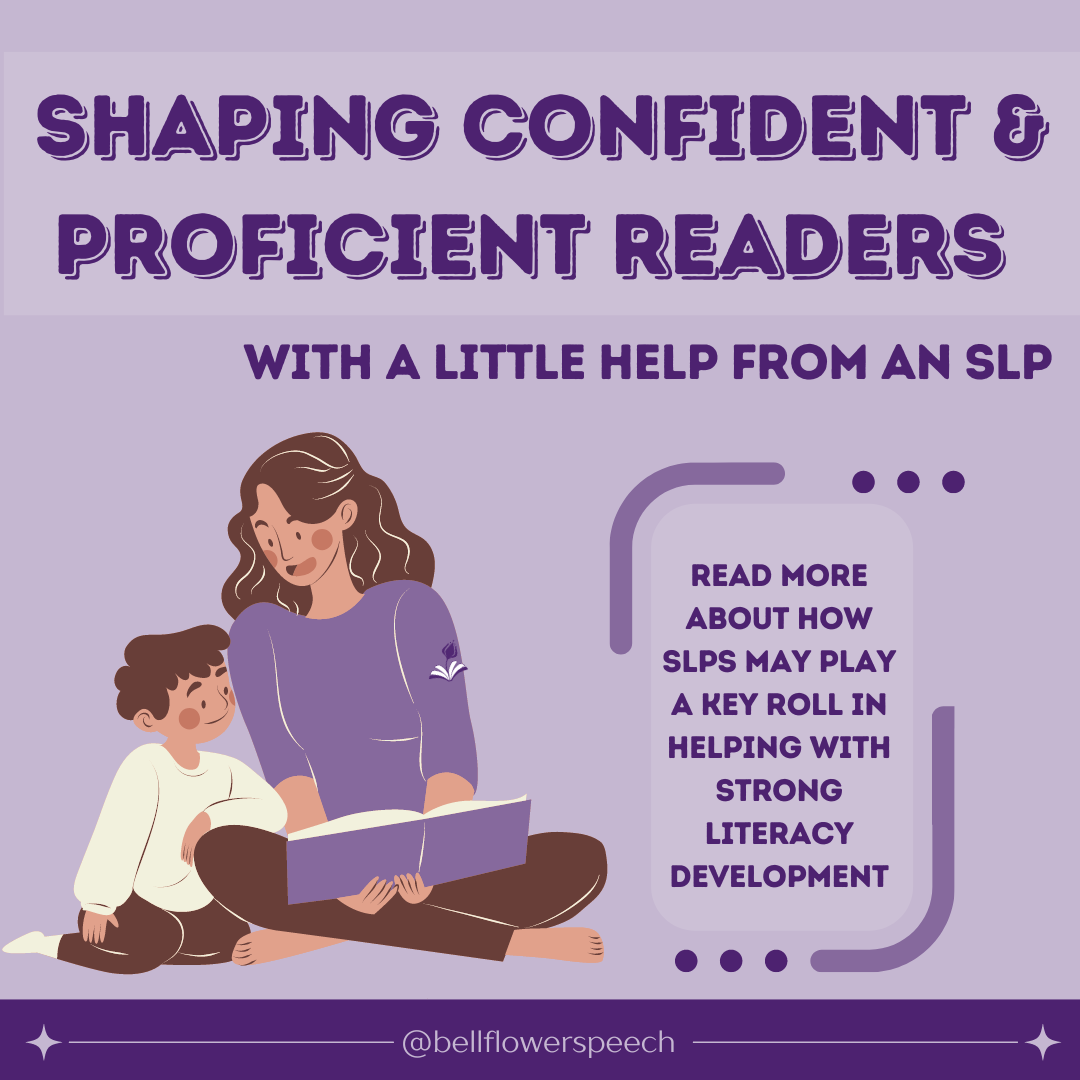How SLPs Can Help Shape Confident and Proficient Readers
Learning to say individual sounds, then blending them together to make words, are the foundation of literacy. While this skill may come easily for some children with instruction, others may need more support. Let’s take a closer look at some factors that can affect a child’s literacy skills:
A Language Delay
Reading is an intricate process and there are many skills needed to become proficient in literacy. A delay in a child’s language comprehension and expression can impact how well they understand and can communicate their understanding of text. Language delays can hinder specific concepts, such as grammar, vocabulary, syntax, and more. Children who have difficulty understanding text will also have difficulty formulating sentences and articulating their thoughts when writing.
Speech Sound Errors
Persistent speech sound errors can lead to difficulty distinguishing between sounds, which affects their ability to recognize and manipulate phonemes (the smallest units of sounds in words). This, in turn, disrupts their phonological awareness, which is critical when it comes to decoding and word recognition when reading. They may have difficulties associating letters with corresponding sounds, which impacts how well they can sound out words when spelling and reading.
Children with speech and language deficits are at a higher risk for reading and writing difficulties. Research shows that both children with language deficits and speech sound disorders are more likely to have literacy difficulties (Overby, Trainin, Smit, Bernthal, and Nelson, 2012). So, when our goal is to create confident and proficient readers, what role does a speech language pathologist play in literacy instruction?
“SLPs can aid the development of emergent literacy skills, which establish the foundation for conventional literacy skills. Emergent literacy skills can include phonological awareness, alphabet knowledge, narrative awareness, and language development among other key skills” (Giroloametto, Weitzman, & Greenberg, 2012).
The American Speech-Language-Hearing Association (ASHA) released an article in 2001, which outlines the role and responsibility of the SLP in reading and writing skills for young children to adolescents:
Preventing literacy difficulties by fostering language acquisition:
Preventing literacy difficulties in children can include working with parents, teachers, or other professionals. SLPs can create programs that help children develop appropriate language skills and strategies to support reading and writing skills. Finding ways to provide several high-quality opportunities for children to participate in literacy activities within a variety of settings (home, school, etc.) will allow for best support when thinking about prevention efforts.
Identifying children at risk for reading and writing problems:
After providing preventative measures for literacy difficulties, children who have not fully grasped emergent literacy skills may then be referred for further assessment. Observation and screening measures can help the SLP gather information to see if further assessment is warranted.
Assessing reading and writing:
SLPs can complete a comprehensive evaluation to assess a child’s overall language skill. The evaluations should assess the child’s ability to use spoken language and determine reading, writing, and spelling skills.
Providing intervention and documenting outcomes for reading and writing:
When SLPs begin to provide intervention for those students needing more support with reading and writing, collaboration is crucial. Working together with teachers, other professionals, and caregivers will provide the opportunity to form comprehensive and functional goals.
Assuming other roles:
Provide assistance when needed to parents and teachers in order to provide the child with any necessary support.
Reading is a critical academic and life skill for children. If you or someone working with your child has concerns with his or her reading skills, consider seeking an evaluation with a Speech-Language Pathologist. Our therapists have experience working on literacy skills and can help tailor an individualized plan to help your child become a confident and proficient reader. Contact us at Bellflower Speech Language and Literacy for more information.

